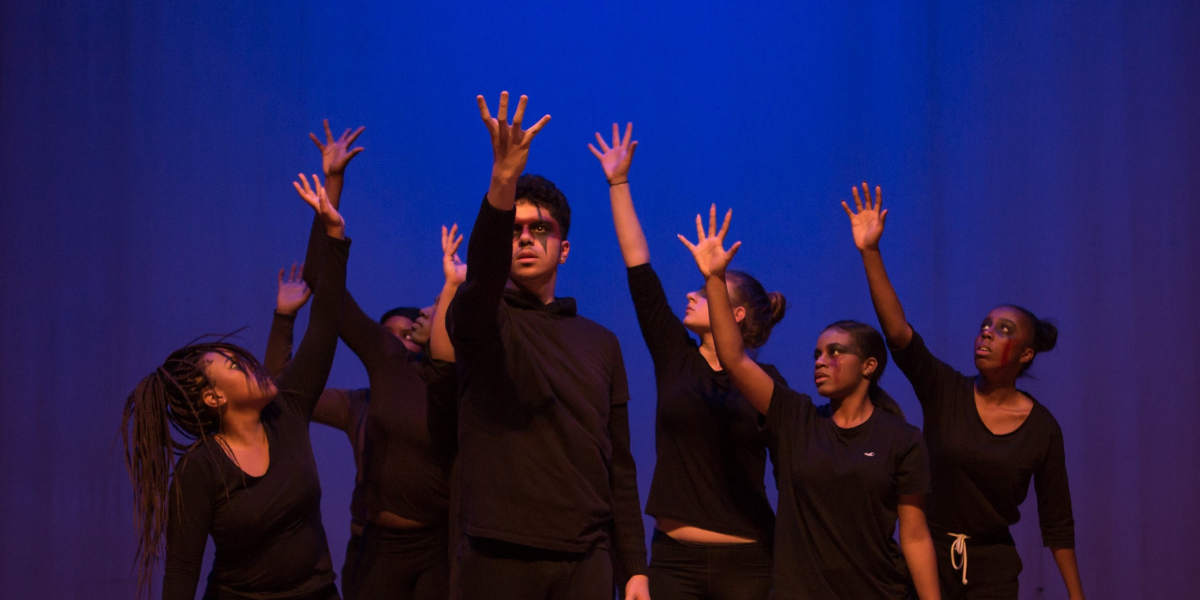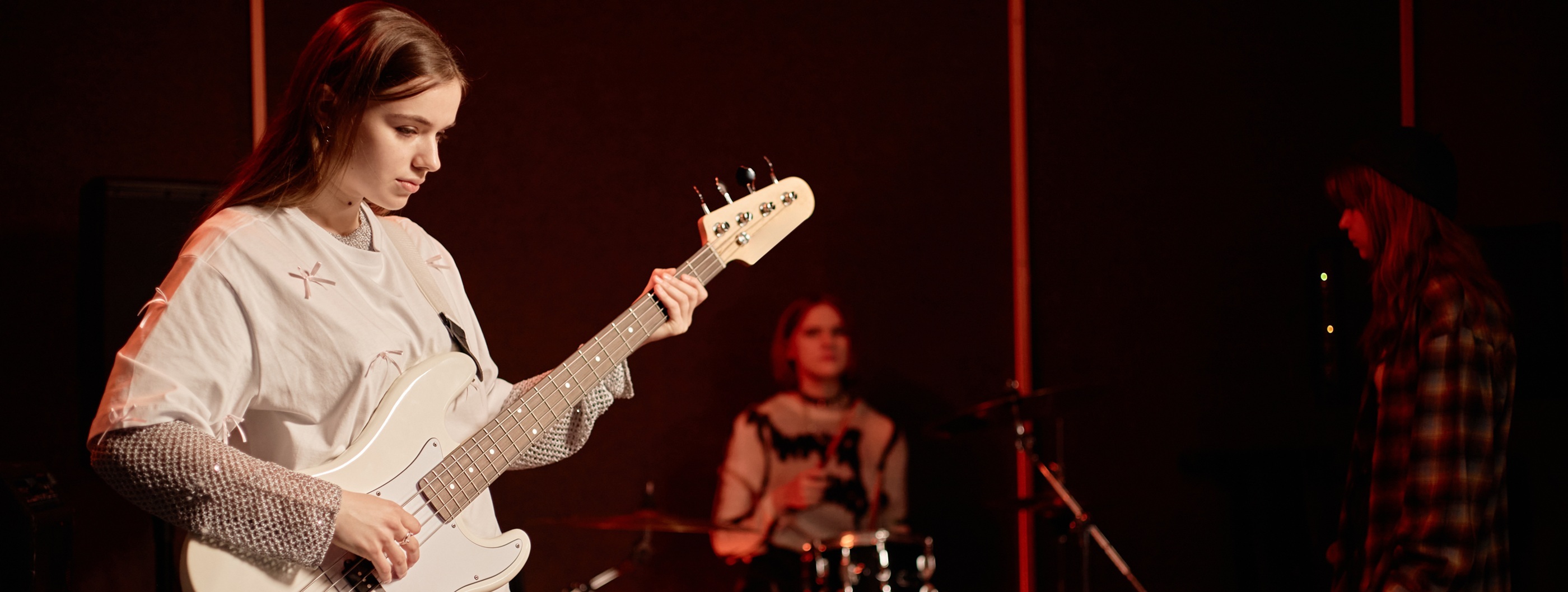
Frequently asked questions and guidance for Trinity College London Music exams
BY: Samantha Steele
03 July 2024
Whether you are new to Trinity College London’s Music exams, or entering an exam after a long hiatus, you might have questions that are frequently asked and answered by the Sector Support Team here at Trinity. This post aims to give you some useful insight into our frequently asked questions across our many different music syllabuses.
Classical & Jazz exams
Singing repertoire Group A songs are split into A(i) and A(ii). Do these constitute two separate groups or one single group? If my student wanted to choose two items from group A(ii) is this permissible?
The whole of Group A - both A(i) and A(ii) - constitutes one single group; this is subdivided to help teachers and candidates navigate the extensive list. Candidates can sing two songs from Group A(ii) but then their remaining songs must come from other the groups (i.e. Groups B, C, D and E). Candidates must also remember that they must also present songs in at least two living languages. For further guidance on selecting repertoire for Singing exams, please read our Singing syllabus or check out our blog: Selecting pieces for your Trinity College London Singing exam.
Can you mix and match Piano syllabuses so 2021 technical work and 2023 pieces?
Building on the existing 2021 publications, we will be continuing to increase the repertoire available to candidates through an ongoing programme of new publication releases. Both the 2021 exercises and the 2023 exercises are listed in the 2023 syllabus. They can choose from one set or mix and match. You can find more information in our Piano repertoire list or Piano syllabus.
Must I use the edition of a piece stipulated on the repertoire list or can I use an edition by a different publisher?
No, recommended editions are listed in the repertoire lists but, generally, candidates may perform from any reliable edition which has not been shortened or otherwise altered or simplified. However exceptions to this do apply: where a specific arrangement is stipulated on the repertoire list, this must be used, and candidates preparing for Jazz Woodwind exams must also use the recommended publication.
Product codes for publications are included where available.
Do I need to perform repeats in the music?
Candidates should observe repeats of up to 4 bars, but longer repeats should not be played unless stated otherwise in the repertoire list. All da capo and dal segno instructions should be observed. Candidates are not required to play cadenzas unless stated otherwise in the repertoire list. You can find more information in the syllabus relating to your instrument.
Rock & Pop exams
Do I have to use a Trinity backing track for my Rock & Pop exam?
Songs performed from the Rock & Pop song books or downloads must always be accompanied by the Trinity backing track provided with your purchase. The only circumstances in which a non-Trinity backing track can be used is for Song 2 if performing an own-choice song or one composed by the candidate.
Does the examiner have the backing tracks in face-to-face Rock & Pop exams?
In face-to-face exams, the examiner will have all the backing tracks for songs in the Trinity songbooks, as well as official additional tracks published by Trinity for purchase from the eStore. Examiners will operate the backing tracks to provide a sound check using the opening bars of the first song. The Trinity backing tracks must be used for any songs chosen from the Trinity songbooks or eStore. If Song 2 is an own-choice song, the backing track should be given to the examiner on a USB stick (in MP3 format) or CD (if appropriate).
Do I need approval for the Rock & Pop Song 2 choice?
No, but own-choice songs must be equivalent in standard to the songs in the Trinity songbook for the grade. Parameters indicating the length and level of difficulty required at each grade are listed on pages in each syllabus to aid you with your choice. You can view the different Rock & Pop syllabuses here.
Digital exams
The Repertoire-only pathway for digital Woodwind exams states four pieces must be played and the syllabus requires two from Group A and one from Group B. Can my student choose three from Group A and one from Group B or two from Group A and two from Group B?
Yes, provided the requirement for two Group A pieces and one Group B piece has been met, the fourth piece in a digital Repertoire-only Woodwind exam can be from either group. The candidate must prepare pieces by at least two composers and can play one piece from the Jazz Woodwind syllabus in place of one of the listed pieces. The chosen piece must be listed for the same instrument and grade and the music be selected from the same group (A or B). You can find more information in our classical Woodwind syllabus.
Which scales and technical exercises do I have to do for my digital exam?
The relevant technical work requirements for Classical and Jazz Digital Grades can be found online here.
Do I have to record my digital exam in a specific order such as pieces first?
You may choose the order of your performance. Provided that your technical work is played as one complete section, it can be presented either before or after your pieces.
I have recorded my exam and you cannot see the music on the stand. Do I need to re-record the exam or will I lose marks?
Trinity guidelines state you should position your camera so that your face, hands and all of your instruments are in the shot while ensuring that your music stand does not obscure the view. We do not need to be able to see the music stand in the recording; however, we would request you show your books or downloads to the camera at the start of the video. You can find more information on our recording guidance.
Diploma exams
Can saxophone, flute and clarinet Diplomas be taken with a full jazz programme of repertoire if people want?
Programmes must comprise predominantly classical repertoire, and programmes consisting entirely of popular or jazz repertoire will not be approved. The programme would need to be submitted for approval and it is possible it may not be allowed due to containing too many items in genres not represented in the published repertoire lists, which should be used as a guide. In particular, we ask that own-choice pieces do not contain improvised sections as the examiner needs to assess for notational accuracy. You can use our Diploma pages to find out more.
Can I send you single scans of my music for approval at Diploma level?
No, any programme including own choice items, or single movements from items listed complete in the repertoire lists, must be approved by Trinity as a complete programme before you can enter for the exam. We are unable to consider submissions of individual pieces. If your programme is all taken from the Diploma repertoire lists then you won’t need approval. You can now use the online portal to submit your diploma-level approval.
These are just some of the most common questions we are often asked. If you need further support, why not try our new support desk and browse our knowledge base for answers to your questions? Or submit a question of your own if you are unable to find an answer. You can find all music-related questions by clicking here and navigating our pages.




Comments & Replies